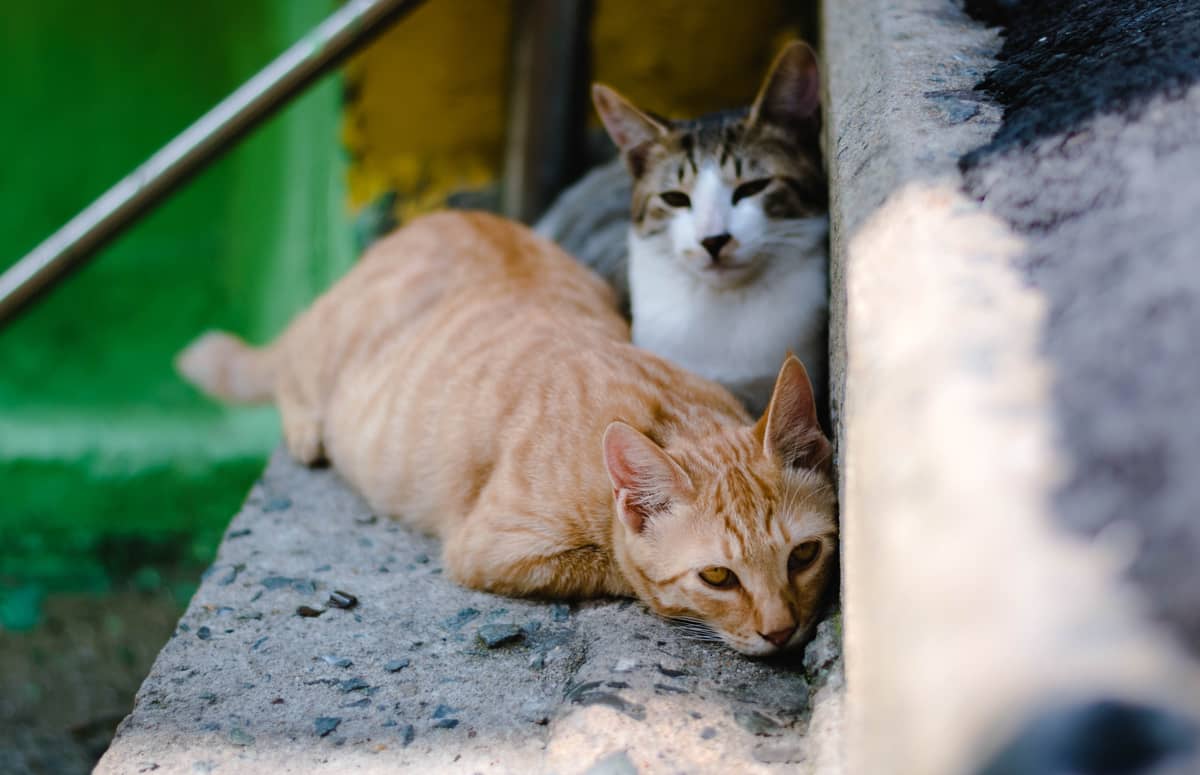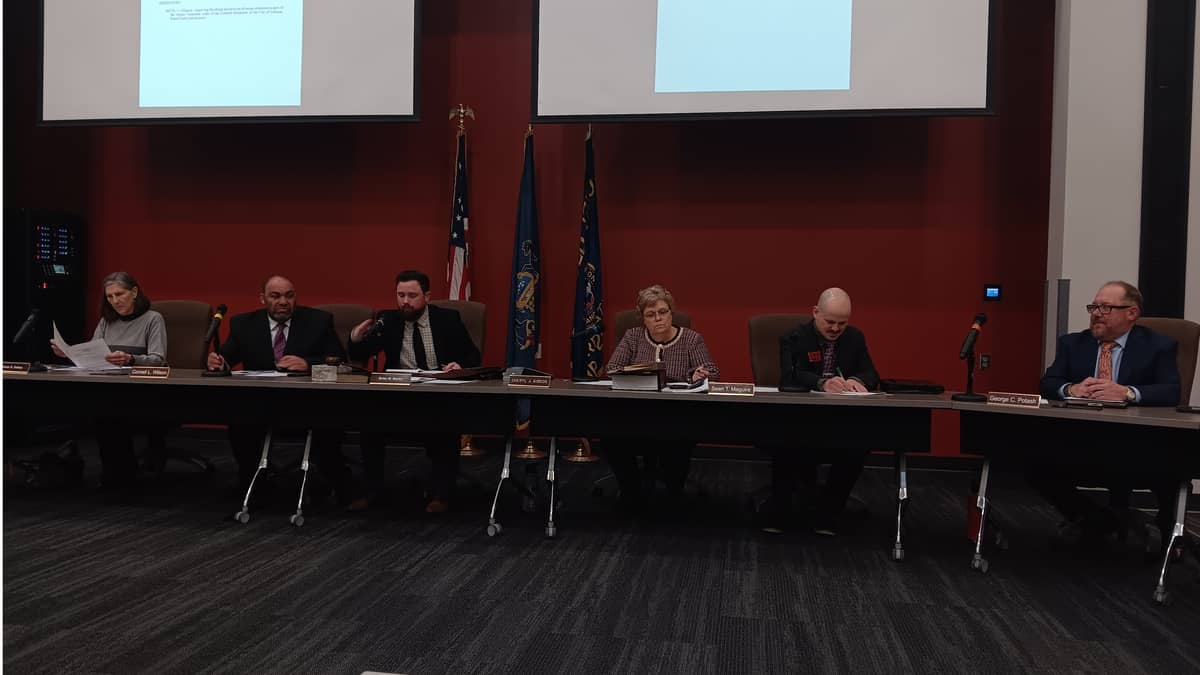Richland is the next Lebanon County community enacting a volunteer-driven Trap-Neuter-Return program to help control feral cat populations in the borough.
The small community in eastern Lebanon County is the third local municipality to launch a TNR program, following after Cornwall and South Lebanon.
Jennifer Wentzel, a founder of Cornwall Community Cats, said she was approached by Richland resident Dana Moyer, who asked her to help get the new group started. Wentzel said the initiative was conceived after borough officials sent out a letter last autumn, asking residents not to feed feral cats.
“Dana was very proactive. She went to a couple of council meetings,” Wentzel said. “I went with her to one. They were very receptive to having a TNR initiative.”
Unlike Cornwall, Richland never took the extra step of passing an ordinance banning residents from feeding wild cats. However, Wentzel said, the letter was enough to show the need for a TNR program.
“I gave them some numbers about what we see (in Cornwall) and what we’re able to do,” Wentzel said. “The program is going into effect later this month, and they are devoting some funds to help the program get started.”
The borough even helped out by including information about TNR volunteer training in a community mailer.
Rebecca Schnoke, secretary and managing treasurer for the borough, said there have been “a number of complaints about the rising number of feral cats in the borough.”
Feral cats can be a nuisance for many reasons, she noted, from leaving feces in residents’ flowerbeds to annoying local dogs.
“Dana approached the borough … and Council thought it was a great idea,” Schnoke said. It’s not a borough program, she noted, although Council did vote to help Moyer with startup costs.
“Dana is willing to work with the borough. We’re going to communicate and work together,” she said. “She’ll give us reports about how many cats have been trapped, neutered and released so we know how things are going. … We want to help in any way we can to resolve the issue.”
It started with ‘Daddy Cat’
Moyer’s involvement was sparked “because I started having cats hanging around my house. I knew they needed to be fixed but I didn’t know how to go about doing that.”
She realized it was a bigger issue when she got the Richland newsletter about feeding feral cats. But that’s not really a solution, she said, because “even when you’re not feeding them, they still are mating — and you get more cats.”
On a more personal level, Moyer told LebTown that she decided to get involved some time ago, after a lone tomcat showed up at her door begging for food.
“He came up on my deck, and I thought I’d feed the poor little guy,” she recalled. “Then a female came, and I knew I needed to get them fixed. Things went from there.”
It took Moyer some time to catch the wily feline, she said. “I had to get a drop trap. He would not go into a box trap.”
But she eventually snared him, and now “he’s fixed and will not make more babies,” she said.
“He still comes every day, for breakfast and supper,” she said. “I call him Daddy Cat.”
She credits the volunteers from Cornwall Community Cats for teaching her how to trap cats for the program. And she also credits the borough for agreeing to support the program.
“I went to borough meetings and they were receptive,” said Moyer, who has lived in the borough since 2008. “They are even providing some money to help get some of these outside cats fixed.”
Greys & Strays in Jonestown is providing low-cost surgeries for the Richland TNR, she said. The feral cats will also get a rabies shot and a notch in an ear that shows they’ve been fixed.
‘They’re just trying to survive’
“We’re just in the early stages,” Moyer said. She noted that she grew up on a farm with feral cats, “so I’ve been around them all my life,” and she currently house her own kitties that she keeps indoors.
Richland Borough has committed $300 to the first phase of the program, which will cover the cost of TNR for about 10 cats, she said. Once that money is spent, she said, “they’ll reevaluate the situation and see what we need to do.”
“Hopefully I can get enough volunteers together,” Moyer added. “We can do fundraisers and get donations so we don’t need to rely on the borough so much.”
Anyone who would like to volunteer to help with TNR in the area — or who needs help with feral cats around their home — can reach out to the organization by emailing LebanonTNR@gmail.com.
Neptune Fire Company loaned their hall to the group for a seminar on TNR by the Nobody’s Cats Foundation of Camp Hill, which helps promote TNR programs in more than a dozen counties in Pennsylvania.
“We had a pretty good turnout,” Moyer said. “I’ve heard from both sides — people who want to help out and help get the cats fixed, and from people who just don’t want them around.
“These cats are out there through no fault of their own. Their behaviors might be annoying, but they’re just trying to survive. By getting them fixed, we can hopefully prevent more from being born into that life.”
Wentzel noted that Cornwall Community Cats has altered and returned 283 cats since the group formed in September 2019. They have also placed 338 cats and kittens in new homes, through adoptions, and have other felines out in foster homes until a permanent residence can be found.
She added that Sam MacIntyre, who has fostered for Cornwall Community Cats, recently formed a volunteer TNR group serving the Manheim area called Precious Paws Community Cats. There is also a movement underway to create a TNR program serving all of Lebanon County.
Questions about this story? Suggestions for a future LebTown article? Reach our newsroom using this contact form and we’ll do our best to get back to you.

Support local journalism.
Cancel anytime.
Monthly Subscription
🌟 Annual Subscription
- Still no paywall!
- Fewer ads
- Exclusive events and emails
- All monthly benefits
- Most popular option
- Make a bigger impact
Already a member? Log in here to hide these messages
Local news is a public good—like roads, parks, or schools, it benefits everyone. LebTown keeps Lebanon County informed, connected, and ready to participate. Support this community resource with a monthly or annual membership, or make a one-time contribution. Cancel anytime.

























